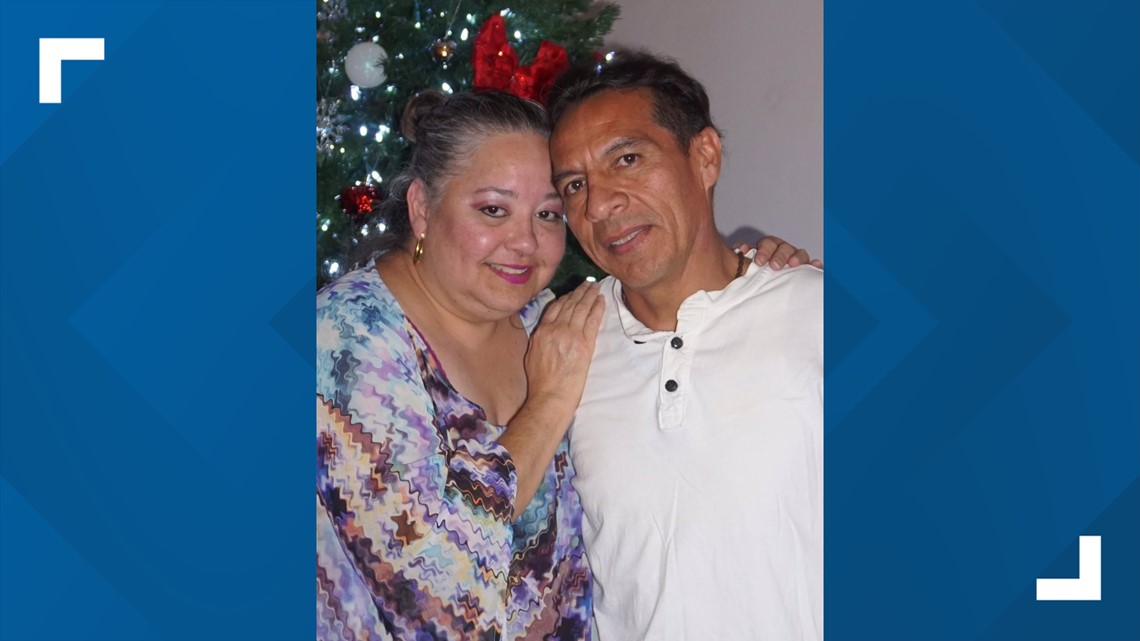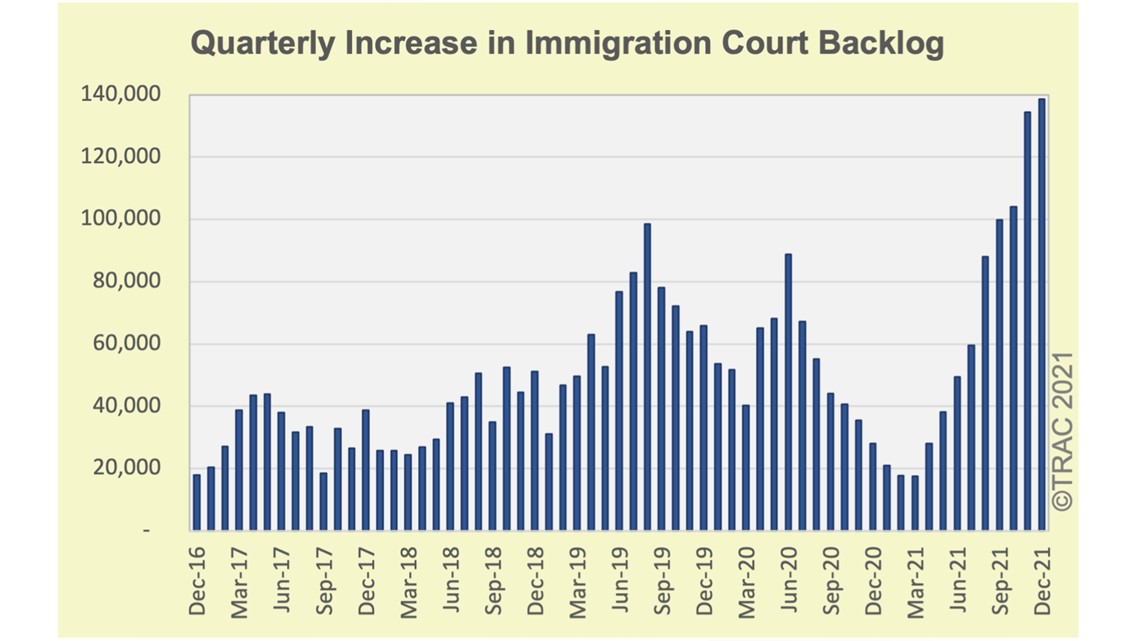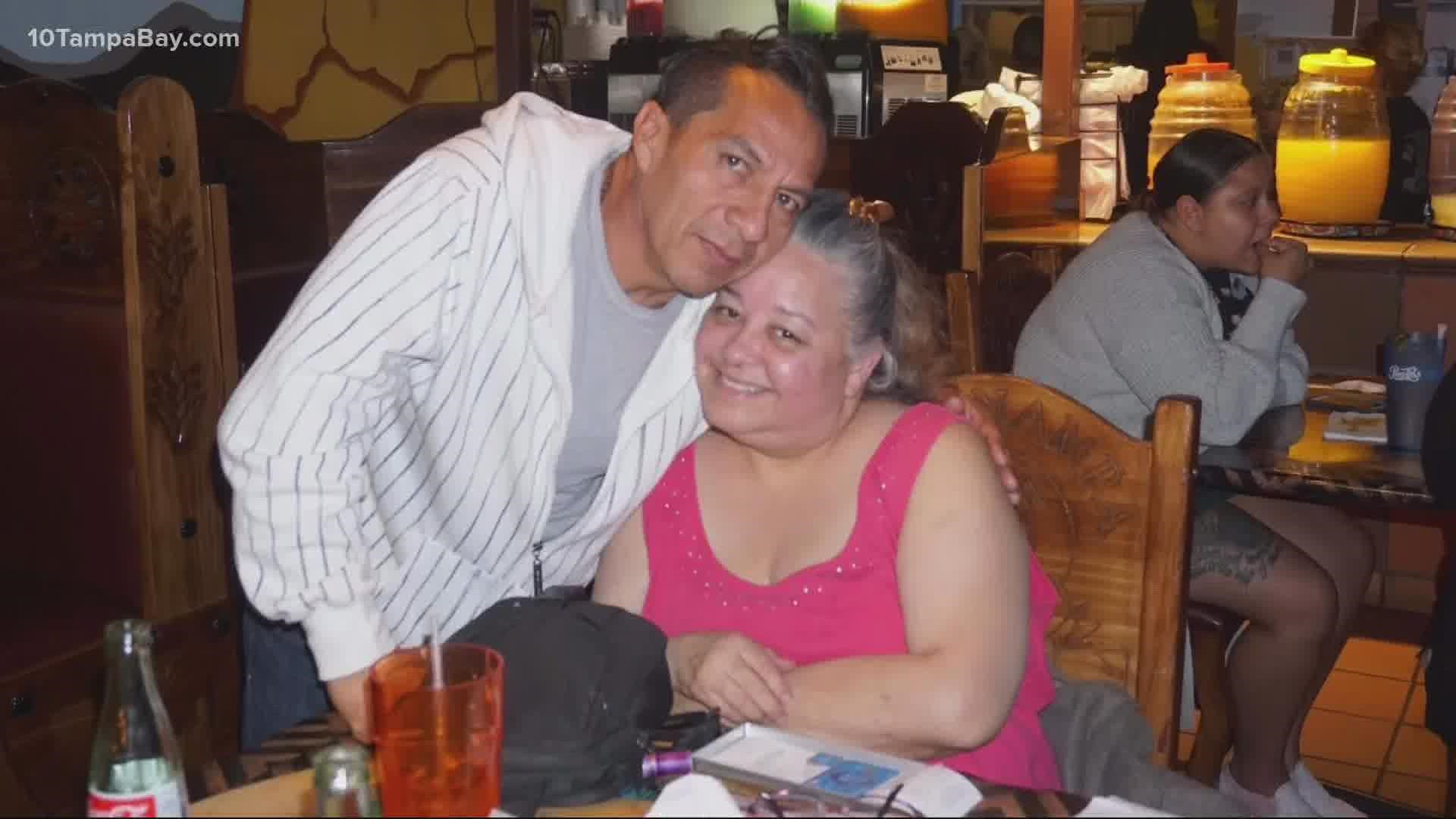ORLANDO, Fla. — Polk County Sheriff's Office deputies arrested Nelson Garcia in November 2021 for attempted murder.
The 22-year-old was accused of slashing a coworker with a box cutter.
10 Investigates learned Garcia was also arrested in August 2020 and taken into U.S. Immigration and Customs Enforcement, or ICE, custody. He had not yet seen a U.S. Immigration Court judge when arrested three months ago.
“I am just very frustrated that there have been people in this country victimized by criminals coming across the border illegally. And we're catching and releasing them," Polk County Sheriff Grady Judd said. "And they're out victimizing again, that is unacceptable.
"That is unacceptable. It's a total failure."
Garcia’s case is one of the many immigration cases stuck in the system, thanks to a historic backlog in Immigration Court.


How many? The U.S. Immigration Court System is dealing with a nationwide backlog of more than 1.6 million cases, according to the Transactional Records Access Clearinghouse, a data-gathering organization at Syracuse University. In Florida alone, there are at least 190,000 cases pending.
"How is that fair? How is that fair to the person waiting for the immigration hearing? How is that fair to the victims? How's that fair to the families?" Judd said.
Dream dashed?
Criminal cases aren't the only issue the backlog is creating. People seeking citizenship are also falling through the cracks.
"That was her major desire — to see me obtain my green card and become an American citizen," said a man who wished to not be identified.
He had married a woman named Carmen, an American citizen, more than a decade ago. But a paperwork error and delays in Immigration Court continue to keep pushing his hearing date back.
"I miss her smile and her personality," he said.
Carmen passed away in August, never being able to see the love of his life get a green card.
"She didn't get to see it, but that's her dream for me to become a citizen," he said.


A historic failure
"In the 18-20 years that I've been doing these, this is the first time that the backlog is very large," said Milena Portillo, an immigration attorney. "I've been doing this for so long and sometimes, I need to kind of not think about it too much and not let it affect me.
"But sometimes, you see things happening and getting delayed, and then the family's falling apart. It gets hard."
There are 580 immigration court judges across the country — 2,700 cases per judge.
"I do think that it reflects a failure on the part of our government to plan properly to address and meet their responsibilities. Under due process. And to the American public," said Mimi Tsankov, who is the president of the National Association of Immigration Judges.
"I'm speaking to in my capacity as president of the National Association of immigration judges. So, the views that I'm going to be expressing here today are my personal opinions. They're not the position of the U.S. Department of Justice, the Executive Office for Immigration Review, or the Attorney General. These were the opinions that were formed after extensive consultation with the NAIJ members."
She says she’s shocked at the backlog and that it has been allowed to grow to the extent that it has.
"It is historic," Tsankov said. "What's happened is that because various administrations have at times wanted to provide resources to law enforcement at the expense of the courts, you've seen a lot of funding toward law enforcement, like DHS prosecute the Department of Homeland Security and not the same level of funding for the court system."
Attorney General Merrick Garland told the Senate Judiciary Committee in October that "we have requested additional funds so that we can put 600 additional personnel, including 100 immigration judges, into our executive office of review so we can do acceleration you’re talking about.”
There's been some progress, but it's not enough.
"Yes, we have been seeing major hiring going on. But what we're not seeing is the level of support personnel being hired that we know we need, as well. And we also need a lot of additional technology," Tsankov said.
More funding is needed.
"And more apprehensions in the United States or at the border can mean more cases for us. And it's interesting because a case that starts at the border oftentimes ends up in the interior part of the country through changes of venue," Tsankov said. "So, while you may see a lot of enforcement at the border, in the end, the cases end up coming to courts like mine in New York City."
Judd says it's not a failure on ICE but the Biden Administration and an overload on ICE, adding there needs to be more immigration judges.
"We need to take these lawyers and put another hundred immigration judges or 200 immigration judges," Judd said. "I believe ICE has got the infrastructure to get them out of here if we can push them through the system. But when they come across that border illegally, they're entitled to due diligence.
"And that takes a system and a process. And it's not weak at the federal system, it is a total failure — a total failure because it's that overwhelmed."
For the man waiting now without his wife for citizenship, he says he’ll wait as long as it takes.
“You never lose hope,” he said.
Help for Florida?
The growth from October to December of backlogged cases is the largest on record: 140,000 cases were added in just that short period of time, according to TRAC.
During the previous Trump Administration, the largest quarterly increase was 100,000 thousand cases.


We reached out to U.S Senator Marco Rubio about the backlog and he sent us this statement:
"Senator Rubio’s constituent services team helped 21,000 Floridians with federal casework issues last year, many of them related to immigration. Unfortunately, immigration-related cases are always complex, and those challenges have been made worse by COVID and a complete breakdown on our border.
"Senator Rubio and his staff will continue to do everything they can to help Floridians navigate the federal bureaucracy."

